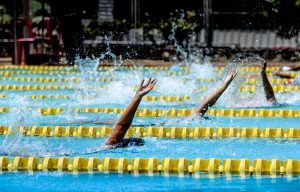
6 Tips for Days When You Really, Really Don’t Feel Like Going to Swim Practice
Going to swim practice feeling like a struggle? Here are some proven strategies and tips to conquer today’s swim practice, even though you might not be feeling it.
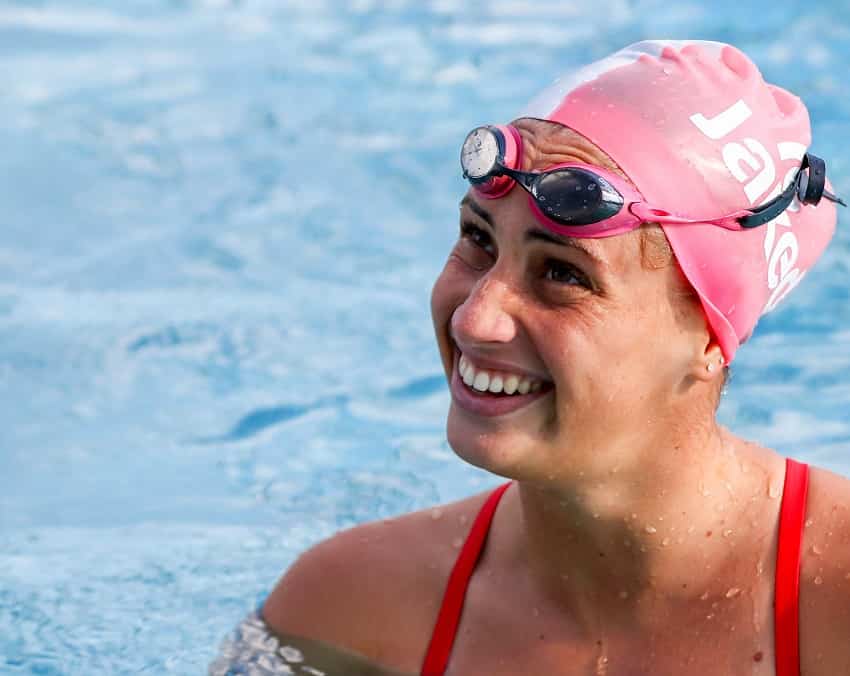
Little tweaks/things in a swimmer’s mindset can make a profound difference.
When a swimmer views hard sets and competition as a challenge and not as a threat, they perform better.
When a swimmer steps up behind the blocks and they are excited about the prospect of racing, not fearful, they swim faster.
And when swimmers understand that they don’t have to go to practice and work their butt off, that they get to, they train faster and have more fun doing it.
Although swimmers tend to look at a high-performance mindset with a sense of awe, a measure of I don’t even know where to start to be as mentally tough as elite swimmers, being sharp between your ears only requires a couple key changes.
And one of them is taking a little control of the language you use.
Language like “I have to.”
A lot of the time, I have to is simply a mindless product of the language we use. A linguistic habit when talking about doing something requires a bit of effort or might cause a little unpleasantness.
I have to do my homework. I have to go to bed early tonight. I have to use social media less. I have to eat dinner. I have to stop and buy toothpaste on my way home.
So commonplace, you probably don’t even notice it peppering your conversations and self-talk, including the narrative you use when talking about your swimming.
I have to swim fast or else it will feel like the season is wasted. I have to go practice tomorrow morning. I have to win this race. I have to work hard or else I will get in trouble from coach. I have to swim faster today. I have to be more motivated to train hard.
When you have to do something, the context is clear: you don’t want to do it.
I have to spend more time working my core. I have to make more morning workouts. I have to eat better. Ugh.
The soaking negativity that is all over I have to is a little silly when you step back and think about what you are saying. You love swimming, you like hanging out with your friends at the pool, and getting better in the water is exciting, and yet the language you use spells out a different story.
I have to is being forced to do the thing you love. I have to means swimming fast and working hard is a burden.
And while the negativity that wafts off I have to like the scent of mold from that pull buoy that’s rotted under the bleachers can seem harmless, or like an insignificant tweak in language, it leads to a lot of needless resistance when it comes to your effort. And makes things far more struggley than necessary.
Look…
I know that our sport is tough. Demanding. Often unfair.
There will always be things within it that we don’t want to do. Early morning workouts. Swimming backstroke in a lane teeming with breaststrokers. Going to finals at a meet when you didn’t qualify for any second swims. Swimming is hard. Training is hard. Racing is hard.
But we certainly don’t need to make it harder by loading up our self-talk with I have to.
Compared to the powerlessness of I have to, rephrasing your self-talk with I get to gives you an immediate sense of control.
I get to opens the door for possibility. I get to acknowledges that this sport and this moment is to be unwrapped like a present being torn open by an under-slept three year old on Christmas morning.
I get to makes things a little more exciting.
I get to reminds you that this is a choice. It’s maybe not a surprise to hear that choice is motivating. When we feel like we have choice, we have control, which translates to confidence.
I get to reminds you that you could be doing something else, you could be elsewhere, but you are here, in this moment, taking things to the limit.
I get to, and the appearance of choice that it provides, is like a little mental escape hatch—just knowing that this is a choice changes the outlook we have on what is coming.
I get to is a reminder to be grateful. That being able to swim is a privilege. That getting up and racing is something you get to do, not something you have to do.
Because really, no one has a gun to your head. And even though we like to bemoan the struggles of our sport—I swam more kilometers lasts week than I drove!—we secretly love the chlorine out of this sport.
There’s something about complaining the difficulties involved that certify the time we spend on it. To struggle is to strive. But that doesn’t mean the struggle needs to be coated with a sense of dread and distaste.
I get to won’t make things easy. The challenge, the discomfort, the pain and agony of pushing yourself to the brink will still be there.
But I get to shows that you choose the discomfort.
And you have chosen to suffer this sport for the reasons that promote feelings of competence and confidence: getting better, pushing yourself, chasing limits with your friends.
When things are hard, and they will be, remember that you get to do this.
The Swimmer’s Guide to Performance Anxiety and Pre-Race Butterflies. The stress and anxiety of competition is universal. Here’s how to navigate the sometimes confusing mindsets and emotions that happen before swimmers race.
This Mental Training Workbook Will Help You Swim Like a Rock Star This Season. Confused about mental training? Want to unleash pro mode on your swimming this year? Learn how this mental training workbook will change your mindset and help you pummel your PB’s this season.

Olivier Poirier-Leroy Olivier Poirier-Leroy is the founder of YourSwimLog.com. He is an author, former national level swimmer, two-time Olympic Trials qualifier, and swim coach.
Olivier is the author of the books YourSwimBook and Conquer the Pool. He writes all things high-performance swimming and is passionate about helping swimmers, swim coaches, and swim parents master the pool.
His articles were read over 4 million times last year and his work has appeared on USA Swimming, SwimSwam, STACK, NBC Universal, and more.
He’s also kinda tall and can be found hitting noon-hour lap swims. You can learn more about Olivier here.

Going to swim practice feeling like a struggle? Here are some proven strategies and tips to conquer today’s swim practice, even though you might not be feeling it.
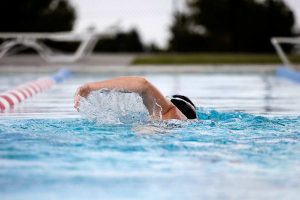
Feeling stuck with your journaling? Here are some journaling prompts for swimmers to build self-awareness, confidence, and help swimmers maintain perspective over the course of the swim season.

Swimmers invest a lot of time in the water over the course of the season. The two-a-days, long swim meets, and the perpetual sogginess can be difficult to bear for even the most motivated of swimmers. In the moments when you are struggling with commitment or motivation, it’s a great

Each day at the pool, you have some decisions to make, weighing the trade-offs. Here’s how to choose faster and better swimming.
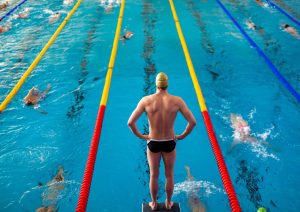
Motivation or some variation of it is by far the most common query I get from readers of my weekly newsletter. “How do I get motivated to work hard?” “How do I get motivated to do the things necessary for my goals?” “Why is it so hard to get motivated
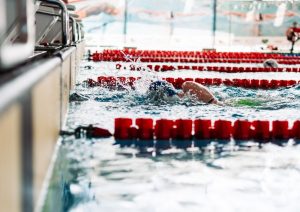
During my noon-hour swim today, my mind wandered back to my age group days. The swimmers I trained with. The swimmers I raced against. My heroes growing up. And the resulting big box of ribbons and medals collecting dust under my bed. Over the years, I realized, I’d learned a

LANE 6 PUBLISHING © 2012-2024 · PRIVACY POLICY · RETURN POLICY · TERMS OF SERVICE · AFFILIATE DISCLOSURE